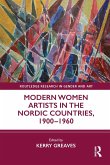Challenging the stereotypes of Scandinavian design, these essays explore design in Denmark, Norway and Sweden and assess the different roles that Finland and the wider Nordic region had in forming an image of Scandinavian design throughout the world. By examining the legacy of Nordic design and its global impact, editors Astrid Skjerven and Rachel Gotlieb shed light on the development of national and regional design identities and their historical associations. Authors investigate the transnational circulation of ideas throughout the later 20th century and consider the influences on design practices, production and consumerism. They look at how different countries negotiated and promoted Nordic branding and ideology, and offer new perspectives on design in relation to sustainability, changing economies and indigenous traditions.
A range of leading international scholars evaluate the popularity of Nordic style in Soviet material culture, the influence on jewellery design in post-war Britain, the impact of national design conferences, exhibitions, and education in Europe, the USA, Canada and Japan.
Drawing from a wealth of archival material and interviews with designers, makers and other stakeholders, this book reveals a lesser-known history of cross-cultural collaborations, exhibition production and tensions between mainstream and indigenous design in Scandinavia. Transnational Discourses in Nordic Design also provides an insight into some of the authors' own design practices and reveals the challenges facing Nordic designers today.
Hinweis: Dieser Artikel kann nur an eine deutsche Lieferadresse ausgeliefert werden.
A range of leading international scholars evaluate the popularity of Nordic style in Soviet material culture, the influence on jewellery design in post-war Britain, the impact of national design conferences, exhibitions, and education in Europe, the USA, Canada and Japan.
Drawing from a wealth of archival material and interviews with designers, makers and other stakeholders, this book reveals a lesser-known history of cross-cultural collaborations, exhibition production and tensions between mainstream and indigenous design in Scandinavia. Transnational Discourses in Nordic Design also provides an insight into some of the authors' own design practices and reveals the challenges facing Nordic designers today.
Hinweis: Dieser Artikel kann nur an eine deutsche Lieferadresse ausgeliefert werden.









